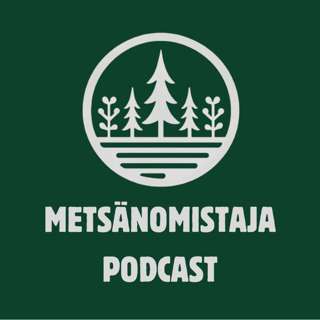
169 - Art
Moira Dillon studies how “the physical world in which we live shapes the abstract world in which we think,” and in this episode we travel to her Lab for the Developing Mind at NYU to sit down and ask her a zillion questions about how the brain creates the reality we interact with, and how we attempt to communicate that reality to others through language, art, geometry, and mathematics.Patreon: http://patreon.com/youarenotsosmart
15 Joulu 20191h 44min

168 - Not a Scientist (rebroadcast)
Our guest in this episode of the You Are Not So Smart Podcast is Dave Levitan, a science journalist with a new book titled: Not a Scientist: how politicians mistake, misrepresent, and utterly mangle science.In the book, Levitan takes us through 12 repeating patterns that politicians fall into when they mistake, misrepresent, and mangle science. Some are nefarious and intentional, some are based on ignorance, and some are just part of the normal business of politicians managing their public image or trying to appeal to their base.--- • Show Notes: www.youarenotsosmart.com-- • Parcast: Natural Disasters-- • Squarespace: www.squarespace.com CODE: SOSMARTPatreon: http://patreon.com/youarenotsosmart
2 Joulu 201941min

167 - How to Talk to People About Things (rebroadcast)
In this episode, we sit down with negotiation expert Misha Glouberman who explains how to talk to people about things -- that is, how to avoid the pitfalls associated with debate when two or more people attempt to come to an agreement that will be mutually beneficial.- Show notes at: www.youarenotsosmart.com- Become a patron at: www.patreon.com/youarenotsosmartSPONSORS• The Great Courses: www.thegreatcoursesplus.com/smart• Squarespace: www.squarespace.com/sosmartPatreon: http://patreon.com/youarenotsosmart
18 Marras 20191h 42min

166 - Prevalence Induced Concept Change (rebroadcast)
In this episode we explore prevalence induced concept change. In a nutshell, when we set out to change the world by reducing examples of something we have deemed problematic, and we succeed, a host of psychological phenomena can mask our progress and make those problems seem intractable -- as if we are only treading water when, in fact, we’ve created the change we set out to make.||| Show Notes at YouAreNotSoSmart.com |||Patreon: http://patreon.com/youarenotsosmart
4 Marras 201927min

165 - The Friendship Cure (rebroadcast)
On this episode, we welcome journalist Kate Leaver to talk about her new book The Friendship Cure in which she explores the crippling, damaging, life-threatening impact of loneliness and the severe mental health impacts of living a life disconnected from a support network of close contacts. But...there is a cure...learning how to connect with others and curate better friendships.In the interview we talk about loneliness, how to make friends, the difference between male and female friendship, platonic friendships, friends with benefits and lots, lots, more.Patreon: http://patreon.com/youarenotsosmart
21 Loka 20191h 23min

164 - Meetings - Steven Rogelberg
You probably hate meetings -- most people do -- and much of their awfulness feels inevitable which makes meetings seem unnecessary, but psychologist and organizational scientist Steven Rogelberg says that neither of these conclusions are true. Meetings are only bad if we make them bad, and since they are crucial to the cohesion of any institution, he wrote a book about how to use his research and the research of others to improve the meetings that must take place within any organization.- Show notes at: www.youarenotsosmart.com- Become a patron at: www.patreon.com/youarenotsosmartPatreon: http://patreon.com/youarenotsosmart
7 Loka 201951min

163 - The Happiness Lab
In this episode we welcome Yale psychologist Laurie Santos who discusses her new podcast, The Happiness Lab which explores how wrong and misguided we can be when we pursue the things we think will make us happy or avoid the things that we think will make us sad.Based on the psychology course she teaches at Yale - the most popular class in the university’s 300-year history - The Happiness Lab is a tour of the latest scientific research into what does and does not make us happy.- Show notes at: www.youarenotsosmart.com- Become a patron at: www.patreon.com/youarenotsosmartPatreon: http://patreon.com/youarenotsosmart
23 Syys 20191h 6min

162 - The Elaboration Likelihood Model (rebroadcast)
In this episode we sit down with psychology legend Richard Petty to discuss the Elaboration Likelihood Model, a theory he developed with psychologist John Cacioppo in the 1980s that unified the study of attitude change and persuasion and has since become one of the most robust models for explaining how and why some messages change people’s minds, some don’t, and what makes some stick and others fade in influence over time.- Show notes at: www.youarenotsosmart.com- Become a patron at: www.patreon.com/youarenotsosmartSPONSORS• The Great Courses: Free month at www.thegreatcoursesplus.com/smart• Squarespace: Use the offer code SOSMART at www.squarespace.com for 10 percent off your first purchase.Patreon: http://patreon.com/youarenotsosmart
9 Syys 201945min






















